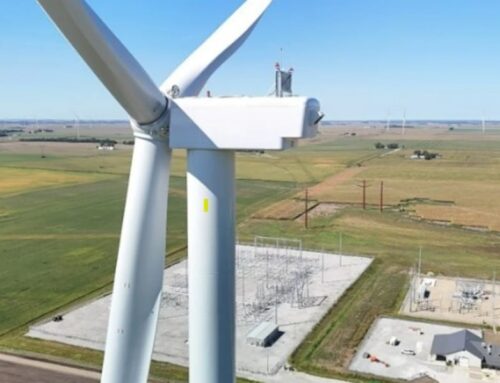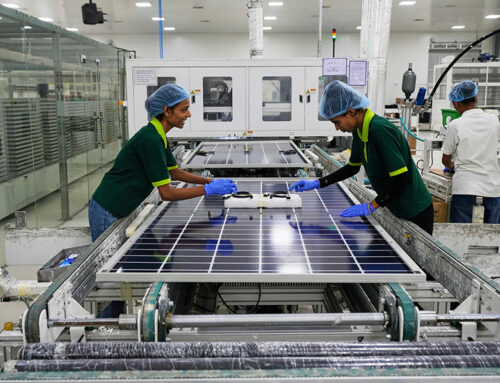Twenty Years After Francisco Anselmo’s Sacrifice, Environmental…
November 13, 2025
Twenty years ago this month, Brazilian environmentalist Francisco Anselmo gave his life in a desperate act of protest — a plea for Brazil and the world to recognise the destruction of the Pantanal, the largest tropical wetland on Earth. His courage was born of love: for this extraordinary ecosystem, for the communities who depend on it, and for the living world that sustains us all.
This year, as COP30 unfolds in Belém, that same love finds new expression in collective action. For the first time in the history of the COP climate talks, the Pantanal will have its own delegation at the planet’s most important climate summit: Delegação Pantanal. Composed of civil society representatives, researchers, and institutions working across the region, including the Environmental Justice Foundation (EJF), the Pantanal delegation was created to amplify the voice and visibility of this vital biome.
The message they bring is one of urgency. The Pantanal is burning, drying up and shrinking before our eyes. In 2020, one-third of the wetland was lost to fires that killed millions of animals and released as much carbon as Belgium’s annual emissions. Indigenous and traditional communities were hit especially hard, losing vast areas of their territories to fires they did not cause.
According to new data released at COP30 by MapBiomas, 2024 was the driest year in the past four decades for the Pantanal. Meanwhile, soy monocultures and expanding agribusiness continue to advance into its floodplains, turning Anselmo’s warning into reality. A new report by EJF shows that freshwater wetlands are among the planet’s most powerful but neglected climate allies: they store vast amounts of carbon, regulate water flows, and sustain biodiversity and livelihoods worldwide.
Steve Trent, CEO and Founder of EJF, said: “Wetlands like the Pantanal are disappearing three times faster than forests, yet they remain invisible in most climate discussions. If we lose them, we lose one of our greatest allies in the fight for climate stability, biodiversity and justice for the communities who live in balance with nature. To honour Francisco Anselmo’s legacy means not only remembering his sacrifice but fulfilling his mission: to defend the Pantanal, to safeguard all wetlands, and to act with the same courage he showed twenty years ago.”
Anselmo’s courage lives on today in those who continue his fight: the Indigenous firefighters risking their lives to protect the Pantanal and the Indigenous leaders, artists, scientists, journalists, and activists standing up for this irreplaceable biome in Brazil and beyond.
As COP30 discussions continue, we call on governments, businesses, and global institutions to:
-
Include wetland protection and restoration in national climate plans and long-term strategies.
-
Commit new funding to protect and restore the Pantanal and other wetlands worldwide.
-
Support Indigenous and local stewardship, ensuring those who protect these ecosystems have the resources and rights they deserve.
-
Establish clear global targets for wetland protection aligned with the Paris Agreement and biodiversity goals.
Join us in remembering Francisco Anselmo and in carrying forward his mission to preserve the Pantanal and, in doing so, protecting our shared planet.
Editor’s Notes
Francisco Anselmo was an environmentalist and activist who died by self-immolation in 2005 as an act of protest for the preservation of the Pantanal wetland in Brazil. At the time, he fought against a bill which proposed building sugar and alcohol plants in the region. Today, the monocultures which have taken over the Pantanal might be different, but they pose the same threat to its existence. The day of Anselmo’s death is now marked with Pantanal Day, an opportunity to remember his act of sacrifice and the continuing urgent need to better protect the world’s largest tropical wetland.
About EJF
Our work to secure environmental justice aims to protect our global climate, ocean, forests, wetlands, wildlife and defend the fundamental human right to a secure natural environment, recognising that all other rights are contingent on this. EJF works internationally to inform policy and drive systemic, durable reforms to protect our environment and defend human rights. We investigate and expose abuses and support environmental defenders, Indigenous peoples, communities, and independent journalists on the frontlines of environmental injustice. Our campaigns aim to secure peaceful, equitable and sustainable futures. Our investigators, researchers, filmmakers, and campaigners work with grassroots partners and environmental defenders across the globe. For more information, please contact media@ejfoundation.org.
Search
RECENT PRESS RELEASES
Related Post


